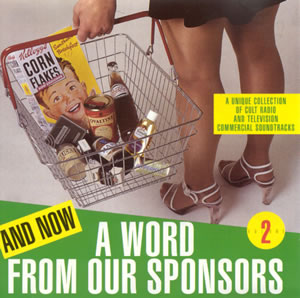Fox Station Fined $4,000 for Omission of Sponsorship ID

WASHINGTON: A Fox-owned TV station in Minneapolis has been fined $4,000 for failing to identify the sponsor of a Video News Release. The Federal Communications Commission today released a notice that it levied the fine against KMSP-TV for willful violation of its VNR rules during a June 19, 2006 newscast. The broadcast included a segment on convertibles that incorporated a VNR from General Motors.
“The recording of the broadcast at issue showed approximately 12 different shots of the three convertibles mentioned in the script: the Pontiac Solstice, the Saturn Sky, and the Pontiac G6. All are General Motors cars. No other convertibles or other cars were either shown or mentioned,” the FCC notice states.
The incident was brought to the FCC’s attention by Free Press and the Center for Media and Democracy, which filed a complaint against KMSP. The FCC inquired, and the station acknowledged that it aired the VNR, which it said was distributed through Fox News Edge, the Fox affiliate news service. Fox contended that the VNR needed “no sponsorship identification announcement” because no one at the station received consideration for air time. It argued that the use of the VNR was no different from reliance on press releases, which do not require sponsorship announcements. Fox said FCC’s inquiry was “impermissible encroachment” on its “editorial discretion.”
FCC rules regarding VNRs provide that any material aired for which money, service or consideration of any type is supplied directly or indirectly--requires a sponsorship identification. The same goes for material containing “an identification of any person, product service, trademark or brand name beyond an identification reasonably related to the use of such service or property on the broadcast,” even if no payment is involved.
The two people featured in the General Motors VNR were the car company’s head of product development, and an editor from “Automobile Magazine” saying: “Does General Motors have the ability to make cars people want? Yes, they do. It’s absolutely clear. This is the key to their survival and on top of that, I have seen, as many journalists have, cars that are scheduled for the next couple of years, and I’ll tell you that if those cars were on the road right now today, I don’t think they’d be in this jam at all.”
This commentary, the FCC said, “was disproportionate to the subject matter of the program segment.”
Fox argued that the FCC’s action violated its First Amendment rights and would cause broadcasters to self-censor. The commission said it wasn’t restricting speech, nor the use of VNRs, but simply requiring public disclosure of advertiser-supplied material used in newscasts. Its ID rules are “grounded in the principle that listeners and viewers are entitled to know who seeks to persuade them,” the FCC said.
Fox can either pay the $4,000 or go through another round of paperwork with the FCC, explaining why it should not be fined.
-- Deborah D. McAdams
The professional video industry's #1 source for news, trends and product and tech information. Sign up below.
